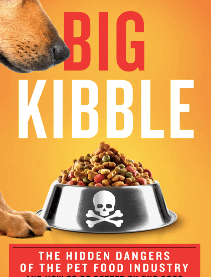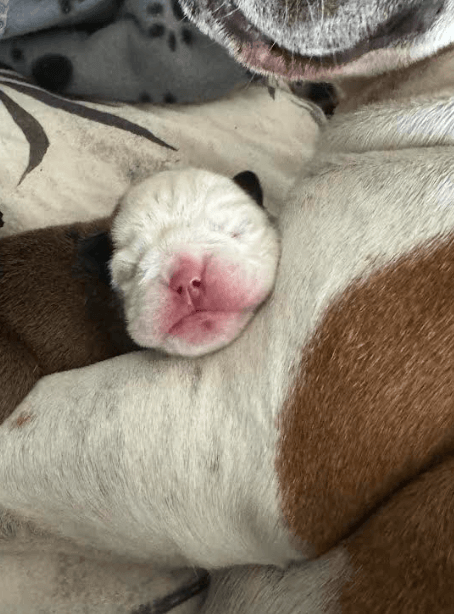Kibble companies don't care about your dog. Period. Regardless of whatever special blend of kibble they produce and market to fix whatever problem that they probably helped to create in the first place. They know exactly what they are creating and also know there is absolutely no way their products are going to do what they are sold to do. Kibble Companies Don't Care About Your Dog. Period.
Every single big kibble company is funding research to better understand the genome of the dog, which means they are striving to better understand the complete set of genetic information of the species. When researching the genome, scientists examine how specific factors, like NUTRITION and DIET impact how certain disease are expressed or not. Mars Inc., Nestle Purina and Hill's produce most of the kibble brands on the market and they all employ very smart scientists, researchers and veterinarians to further their agenda, which is to make money at the expense of your dogs' health regardless of the claims they make. Kibble Companies Don't Care About Your Dog. Period.
For example, Mars Petcare has partnered with the Broad Institute of MIT and Harvard to create an open-access database of dog genomes to advance preventative care (Read more here). Nestle Purina collaborated with Cornell University to develop the Canine Reference Family DNA Distribution center, "a common platform for worldwide genetic data exchange. This canine reference family DNA helped researchers place hundreds of markers near specific genes and chromosomes, improving studies of how diseases – such as familial cancers – develop in both dogs and people" (Read more here).
According to Hill's Petcare, "different ingredients and nutrients have the ability to influence a gene's activity or expression, and can even change how genetic disease manifests. The study of the effect of nutrition on the genome is known as nutrigenomics. Current science can't provide your vet with a magic formula for good health, but it's an exciting new frontier in preventive medicine for our pets"(Read more here). I could not disagree with a statement more.
The magic formula for good health begins in the gut. Hippocrates figured this out 2000 years ago. The gut is a microbiome made of "highly diverse microbial flora, including commensal, symbiotic and pathogenic microorganisms, inhabiting our intestine, and the intestinal microbiome refers to their collective genome and gene products" (Source: National Library of Medicine).
In order for your dog to have a healthy gut, they need to eat a nutrient-dense diet that includes meat, vegetables and some fruit. That's it. Another study states "Metagenomics and analysis of twins data has revealed that environmental factors such as diet and household cohabitation greatly outweigh heritable genetic contributions to the composition and function of gut microbiota" (Source: National Library of Medicine). In other words, diet, nutrition and exercise greatly impact how genes are expressed, more than genetic predisposition even if they are a bulldog.
Ingredients that create an unhealthy gut include excessive grains, sugar, refined seed oils which are ALWAYS found in kibble. Consumption of foods high in grains and sugar spike glucose. which creates inflammation and eventually major metabolic issues like diabetes. Grains are also sprayed with glyphosate unless organic. Refined seed oils are vegetable oil, soybean oil, canola oil, sesame oil, sunflower oil and safflower oil are very high in omega-6. Consumption of too many omega-6 oils disrupts the proper ratio of omega 3 to omega 6 oil and have been proven to disrupt biological processes such as gene expression and lead to disease. The dose determines the poison and the more toxic ingredients, the sicker your dog will become over time.
Despite their understanding of the genome of the dog, Mars Petcare, Nestle Purina and Hill's Pet all use these ingredients in their products. These ingredients are cheap, by-products of their other sugar empires and certainly do not promote health. Kibble Companies Don't Care About Your Dog. Period.
Royal Canin's Breed Health Nutrition Bulldog Adult Dog Dry Food, a kibble that is produced by Mars Inc, claims to meet the nutritional needs of bulldogs 1 year or older. The garbage ingredients include rice, oats, chicken by-product, wheat gluten, dried beet pulp (SUGAR), and vegetable oil. If you want your bulldog to be healthy, the LAST thing you want to do is feed a high carbohydrate and refined seed oil diet, like this one.
Nestle Purina's Purina One Digestive Health claims to support digestive health, but the ingredients they use include flour, whole grains, chicken by-product, oats, soybean meal and natural flavors. If your do has digestive issues the LAST thing you want to do is feed lots of grains and by-products because dogs are simply not designed to consume these ingredients.
Hill's Prescription Diet, h/D Chicken Flavor Dry Dog Food claims to promote heart health. The garbage ingredient list includes whole grain wheat, whole grain corn, chicken by-product and soybean oil. If your dog has heart issues, the LAST thing you want to do is feed this. It will ultimately make your dog sicker than help any heart issue.
They know what they are doing. They have the fancy and expensive partnerships with genome institutes and organizations to prove it. They have strategically designed cheap products to make money literally at the expense of you and your dog. Kibble Companies Don't Care About Your Dog. Period.
If you want your dog to thrive, don't feed kibble. Feed a high-quality nutrient-dense diet. You can learn more about our recommendations here. If your dog is sick and need some help, check out Bobzilla's Happy, Healthy Life Made Simple.
Donate to Bobzilla.org

$5.00
The veterinary business is business which is not in the business of curing your animal, but Bobzilla's business is. Bobzilla is committed to one hundred percent transparency in all of its scientific research into animal wellness and prevention of disease and one… read more




